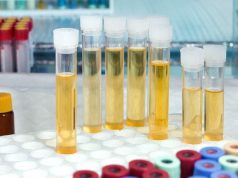Study shows that polygenic score does not modify the 13 percent reduction in ovarian cancer risk seen with aspirin
By Elana Gotkine HealthDay Reporter
TUESDAY, March 7, 2023 (HealthDay News) — Genetic susceptibility to ovarian cancer does not modify the protective effect of frequent aspirin use on ovarian cancer risk, according to a study published online Feb. 24 in JAMA Network Open.
Lauren M. Hurwitz, Ph.D., from the National Cancer Institute in Rockville, Maryland, and colleagues examined whether the association between frequent aspirin use and ovarian cancer is modified by a polygenic score (PGS) for nonmucinous ovarian cancer. Individual-level data were pooled from eight case-control studies between 1995 and 2009. Case and control participants with genetic data and data on aspirin use were included in the study; the analysis included 4,476 case patients with nonmucinous ovarian cancer and 6,659 control participants.
Overall, 13 and 15 percent of case patients and control participants, respectively, reported frequent aspirin use. The researchers found that PGS did not modify the 13 percent reduction in ovarian cancer risk (odds ratio, 0.87). Among individuals with a PGS less than and greater than the median, consistent odds ratios were observed. Similar results were seen by histotype.
“Frequent aspirin use reduces the risk of nonmucinous ovarian cancer — including high-grade serous and endometrioid ovarian cancer — across most strata of genetic risk based on a PGS, including among individuals with a PGS greater than the median,” the authors write.
Several authors disclosed financial ties to the biopharmaceutical industry.
Copyright © 2023 HealthDay. All rights reserved.








